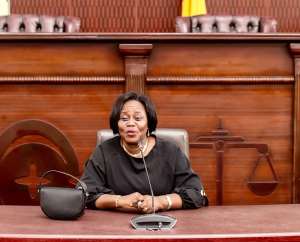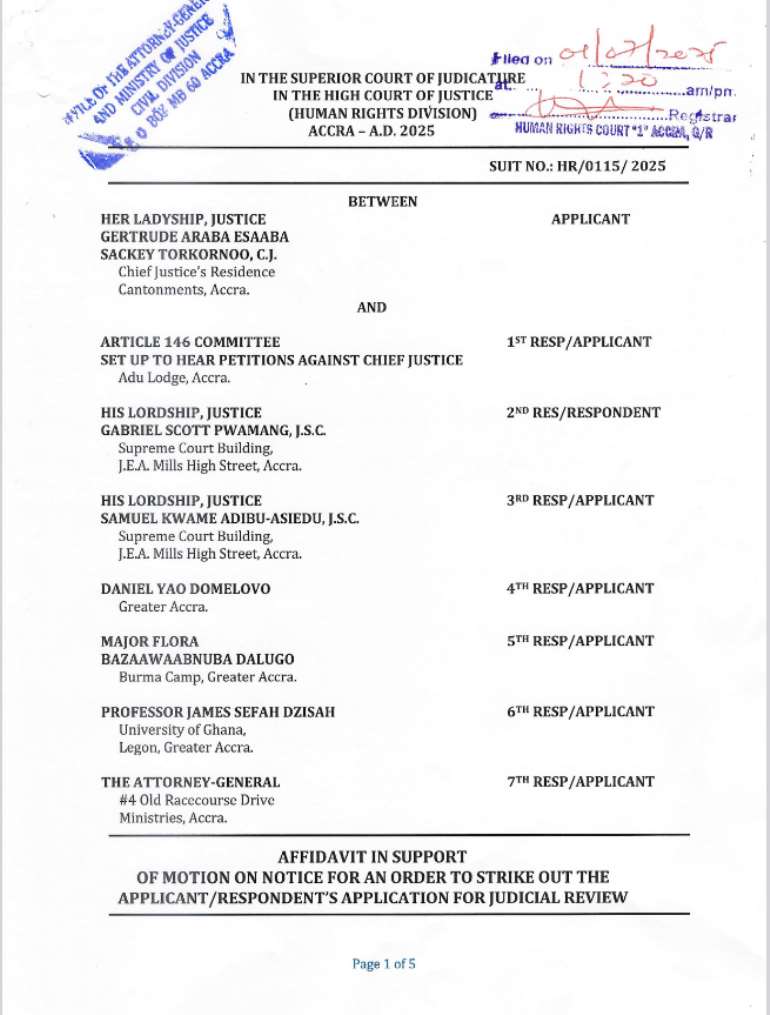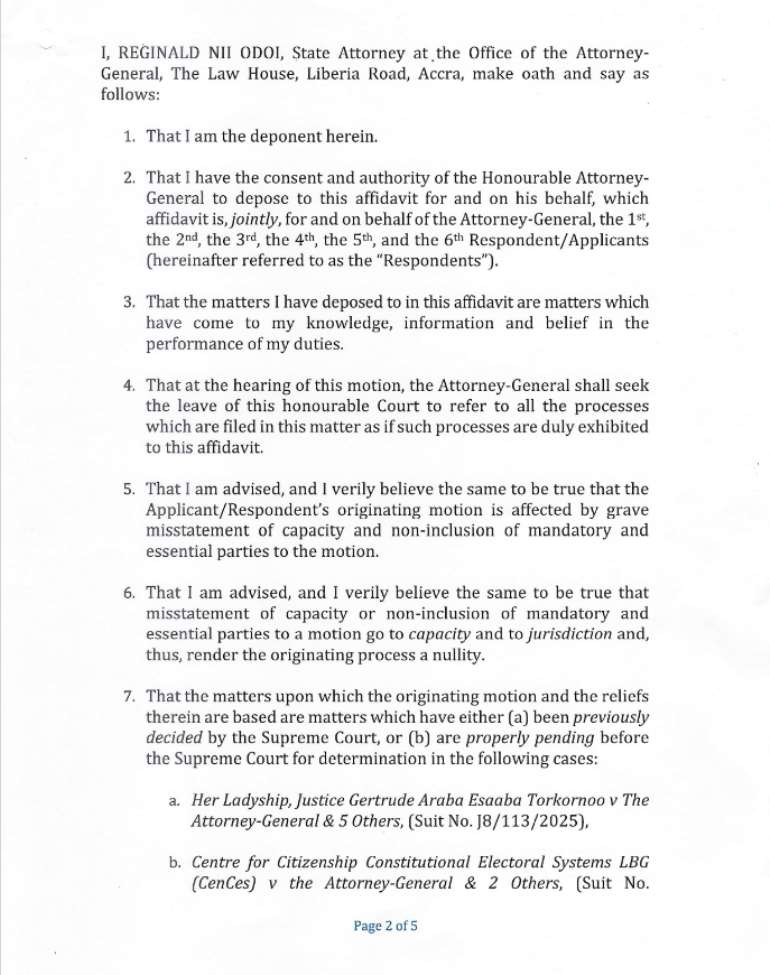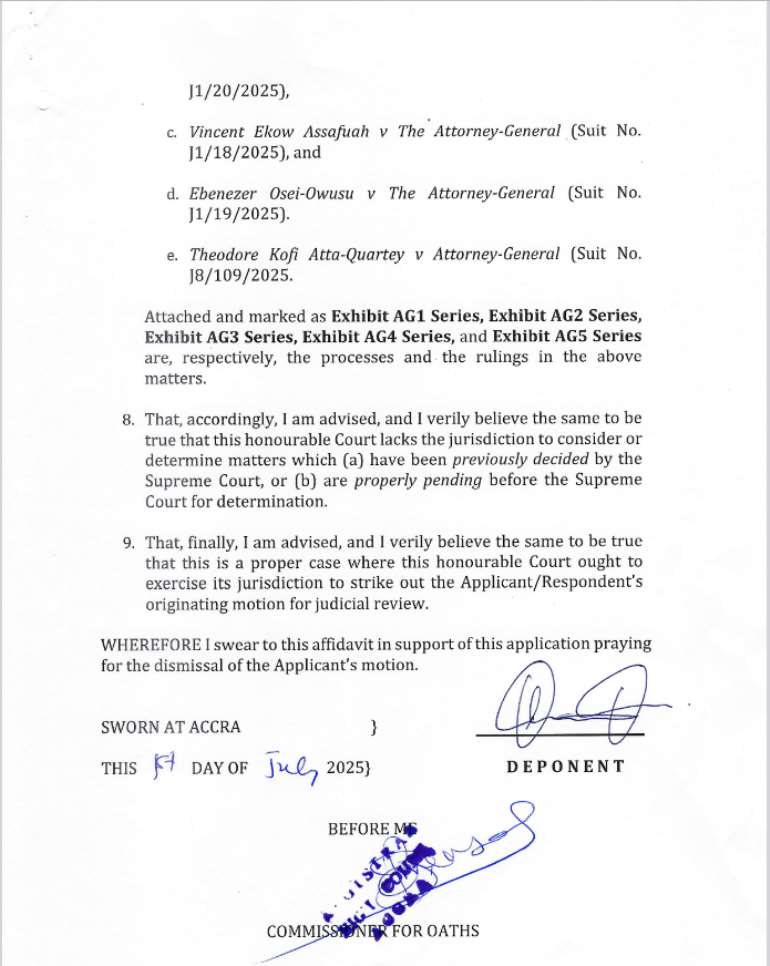 Chief Justice Gertrude Araba Esaaba Torkornoo
Chief Justice Gertrude Araba Esaaba TorkornooThe Attorney-General has filed a motion at the Human Rights Division of the High Court seeking to have an application for judicial review by Chief Justice Gertrude Araba Esaaba Torkornoo struck out entirely, citing fundamental legal flaws.
In a detailed affidavit sworn by Reginald Nii Odoi, a State Attorney at the Office of the Attorney-General, the State argues that the Chief Justice’s application is legally defective due to a “grave misstatement of capacity” and the failure to include “mandatory and essential parties.”
According to the affidavit, these omissions strike at the core of the court’s jurisdiction and render the entire application invalid.
The Attorney-General further argues that the issues raised in the Chief Justice’s motion have either been conclusively dealt with by the Supreme Court or are actively under consideration in other ongoing cases. Notably cited are Justice Gertrude Torkornoo v. Attorney-General & 5 Others (Suit No. J8/113/2025) and Theodore Kofi Atta-Quartey v. Attorney-General (Suit No. J8/109/2025).
The affidavit stresses that allowing the Human Rights Court to entertain the Chief Justice’s request would be inconsistent with precedent and risk undermining the jurisdiction of the Supreme Court.
“The originating motion is affected by grave misstatement of capacity and non-inclusion of essential parties. These defects go to the very root of jurisdiction,” the affidavit states. It adds that the judicial review application is premised on legal matters that “are based on matters either previously decided by the Supreme Court or currently pending before it.”
Attached to the motion are several exhibits—labelled AG1 to AG5—which include relevant rulings and procedural documents intended to support the State’s position.
The Attorney-General is therefore urging the court to strike out the Chief Justice’s application in its entirety.
The Human Rights Court is expected to announce a hearing date for the Attorney-General’s motion in the coming days, a development that is likely to attract intense national interest given the high-profile nature of the parties involved.





